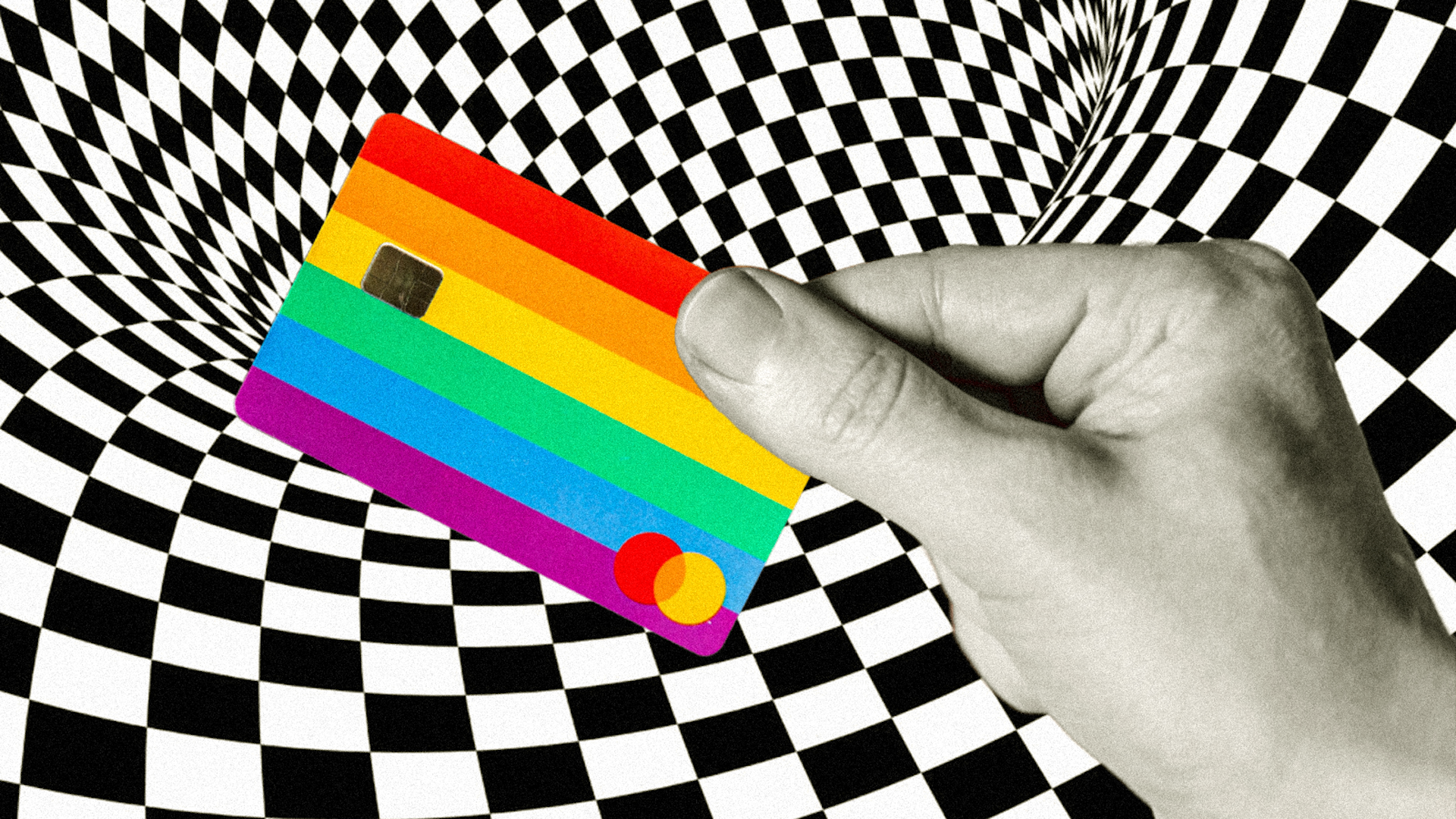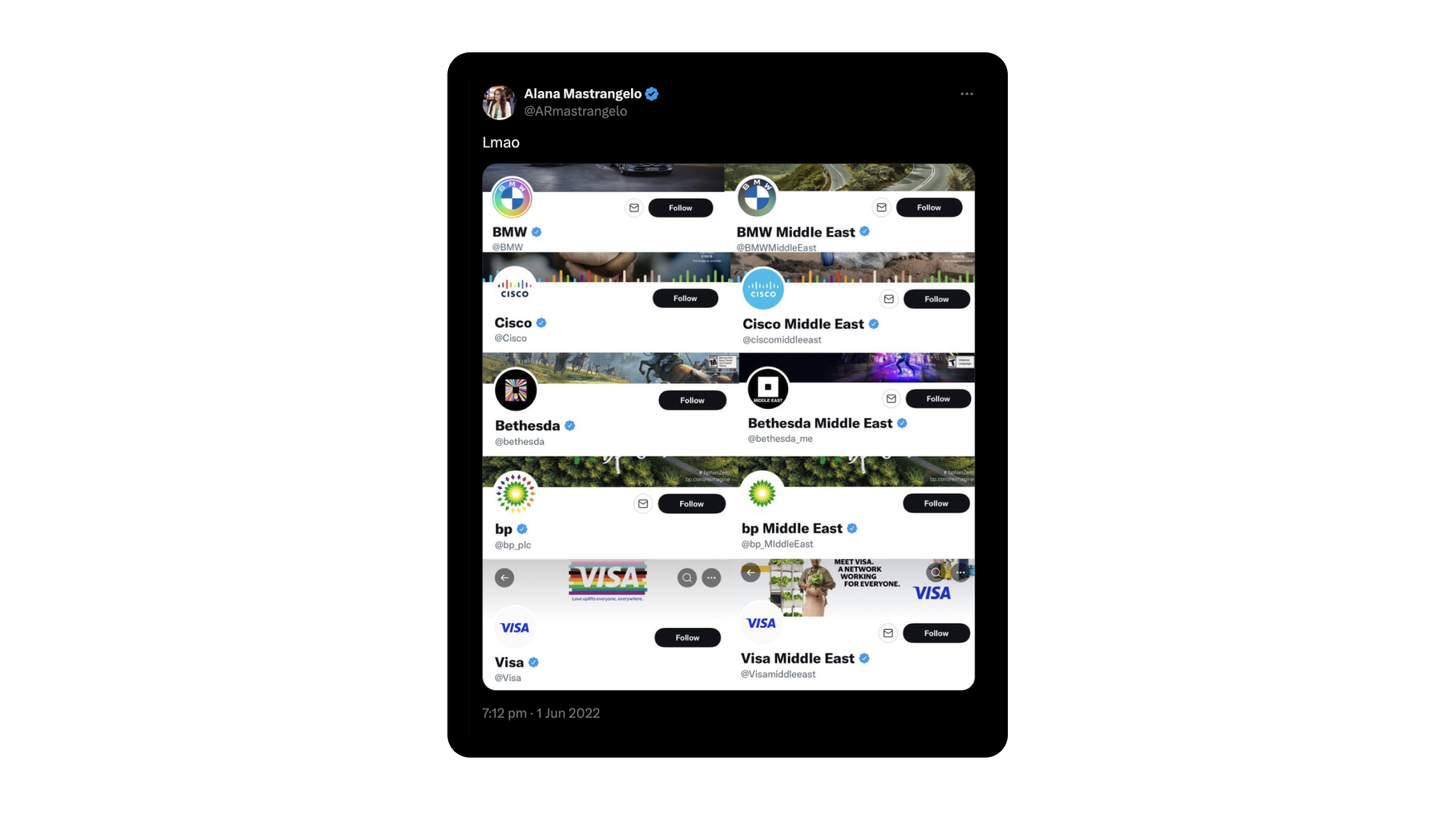Rainbow Logo: A Gateway Into the Corporate Responsibility Crisis

Levi’s, Absolut, Ben & Jerry’s. Apart from the famously decent product quality, what one feature do these brands share? All three are known for their long-standing support of the LGBTQIA+ community.
They welcomed gay collaborators, gave power to queer employees, funded all sorts of advocacy nonprofits. Not necessarily in that order — but in each case, for decades on end, since before it became an expectation in the Western market. Levi’s, for one, was giving domestic partner benefits to its LGBTQIA+ workers since 1992 and was the first Fortune 500 company to do so.
Something else the three businesses have in common? This June, with the calendar signaling Pride month, none of them brought the rainbow palette to their Twitter profile icons. And none of them were criticized for it.
One company that did face backlash, however, was BMW — despite color-coding practically every single one of its Twitter accounts. Except for @BMWMiddleEast. For the second year in a row.
For context, BMW’s Middle East office is located in Dubai, United Arab Emirates, where homosexuality is not only a taboo but a proper offense punishable with fines, jail time, and even the death penalty. Long story short, the West didn’t take long to catch wind of the car manufacturer’s double-gaming.
A lesser-known history of acknowledging the queer agenda paired with the unfortunate branding contradiction resulted in an online debate, which, for some, shattered the credibility and, ultimately, hurt the brand. And it’s not just BMW that came under fire this year: Visa, Cisco, and BP all found themselves in almost exactly the same, culprit position.

On the surface, the takeaway seems to be clear: don’t be a hypocrite and simply do the work, then the Internet might give you a pass. Apple, Nike, Starbucks — in 2022, many corporations are donating to LGBTQIA+ initiatives like The Trevor Project, while keeping their sacred Twitter logos untouched. And that seems to work out. Puzzle solved?
For most businesses looking to fix a quick Pride solution, it is. However, if we consider the bigger picture, that thinking barely scratches the tip of the iceberg.
The fact is, unsettling cyclicities of modern communications have created a demand for corporate responsibility that appears to go beyond rainbow-washing, while, in fact, still fueling the cancel culture — and urging to put the “bad guy” on the spot.
Today, the “bad guy” is BMW. The brand missed the cues and slipped up. Levi’s, the “good guy,” played its cards right, built up a trustworthy narrative, and found a solution that satisfied the global market. The company showed enough support for LGBTQIA+ without making it the focal point nor changing its logo for Pride, and that happened to be the standard of good taste this year. Levi’s won, BMW lost.
No one pointed out the silent treatment of queer community in the Middle-East-based social media accounts of Levi’s. No one really cared about BMW’s Pride network, which has been active for more than two decades, neither. Because one company managed to hit the trend and tell the right story, while the other failed. To a certain degree, one lucked out, and the other didn’t. And it wasn’t a question of the essence behind the logo, but, rather, of pushing the right communication buttons
The war over wokeness has put global businesses in a position where their public image is defined not only by means of purpose and action but also by trend — and chance. We’ve seen it happen with the Black Lives Matter movement, we’ve seen it happen with the Ukraine conflict, we’ve seen it this Pride month. The overturn of Roe vs. Wade might now bring about similar rhetoric, too.
Our new reality — and its many crises — might have just turned corporate communications into a Titanic, where some are looking for lifeboats and some are playing the violin. Yet, everyone is going down regardless. The question is not if but when.
Even the well-intended corporate solutions we see being implemented today are not dealing with, but becoming part of the problem. Because of that, every business entity is getting called out for cynicism sooner or later, Pride month or not, which, if you really think about it, is a tough sentiment to be at peace with.
Philosopher Charles Eisenstein has recently reminded us that in its original meaning, the word “business” meant “the state of being busy.” Every June, companies are busy trying to snatch that pink dollar and win the Pride game without, God forbid, starting a Twitter battle or offending anyone. But if all you’re doing is merely navigating the rainbow minefield, would you ever have time to stop and ask yourself: do bluebirds still fly?
